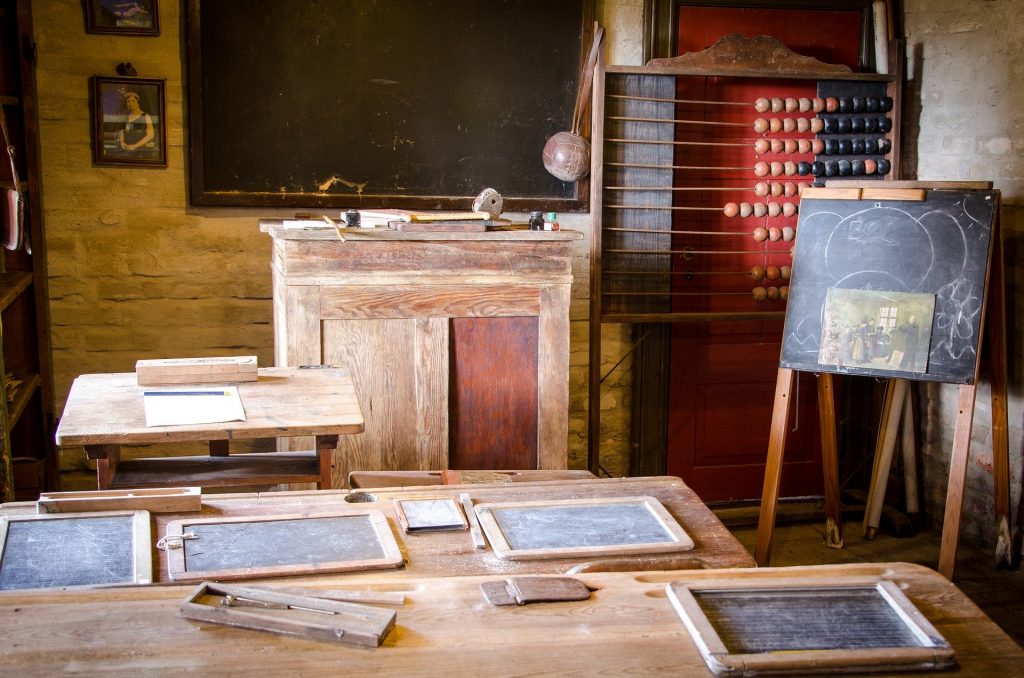
There are countless terms for our present: the digital age, the Information Society, the Post-industrial Era, the Anthropocene. That’s not even all of them. One of them is the Knowledge Society. And according to various sources, that’s exactly what we’re living in now. Do you feel you live in a knowledge society? I once asked myself this question and these thoughts ran through my head.
First of all, what does this term actually mean? For me, it characterises the transition from an industrial society to a knowledge-based production and service society. I know this because I myself am part of this transition. So this term is given a meaning oriented towards the economy. In this context, however, the term knowledge is reduced to the meaning of a production factor, a mere resource. And for me, that is simply too unambitious if the term “knowledge society” is applied to our entire current society.
If I take the knowledge society at face value, then my doubts stem from what I perceive to be contradictions that do not fit a knowledge society at all. Now, contradictions and paradoxes are part of everyday life, you can soothingly counter. Okay, but the problem lies deeper.
Let’s look at our education system. When I think of the criticism that has been growing louder and louder for years, our knowledge society appears to me in a very questionable light. If we look at the sheer volume of further education that has to be provided in companies in order for new employees to be able to work, the level of our education system is obviously not sufficient. The original goal of politics is to use the education system to provide the economy with the resources it needs to prosper. At best, however, this will only fill our stomachs.
But is such an understanding of knowledge still sufficient in our time, given the great global challenges? It seems to me that the same thing is happening to knowledge in this society that we have been observing with money and material values for some time: The gulf between educated and stupid resembles the widening gap between rich and poor. And both always in the ratio of the few to the many. With an increasing tendency.
Not a very good point of departure in view of the tasks to be mastered to secure our living conditions and those of our children and grandchildren on this planet.
If I now relate knowledge to such noble goals, I am forced to ask myself: What kind of knowledge do we actually need? And if I don’t possess it yet: Where can I gain it? Unfortunately, we cannot absorb knowledge like a glass of Riesling. With biotechnology and AI, this will certainly happen one day. But we cannot wait for that. We have to act today. And for that we need this knowledge. And even assuming we know what knowledge we need, the hardest part is still ahead of us.
The creation of knowledge is a highly demanding and energy-consuming form of self-construction. On top of that, it takes time. The starting point is trustworthy data that we perceive and that informs our consciousness. And only when we have combined this with existing information to form something that makes sense to us, can we claim to know something.
One question: How often do you perceive yourself as a member of this knowledge society in such a situation?
A strange characteristic of this knowledge society is above all the uncertainty about which sources one can still trust at all. How do fake news, bubbles, echo chambers and the so-called Post-factual Age fit in with this knowledge society? Are individuals even capable of orienting themselves in this VUCA world? It might not have been a question of right or wrong for a while now, but at least one of plausibility.
Another question: what media sources do you construct your world view from?
There is usually a conclusion at the end. Mine is: let’s change the name of the Knowledge Society to a Knowledge Need Society. This is also more in line with the many different initiatives on learning, especially informal learning, lifelong learning and, of course, quite fashionably agile learning. Enriched and supported by EU framework guidelines on key competences and “future skills”. I find it remarkable that these initiatives have all emerged outside our bureaucratised education system and obviously reflect a social and economic need. We will not live long enough to experience the possible restructuring or new construction of the education system, so my advice is: every man for himself – oh sorry, I mean: educate yourself if you can. Then we could even have an educational society worthy of the name.
Original text: PUE
English translation: BCO
Bildquellen
- antique-1854416_1920: Preben Gammelmark / Pixabay

